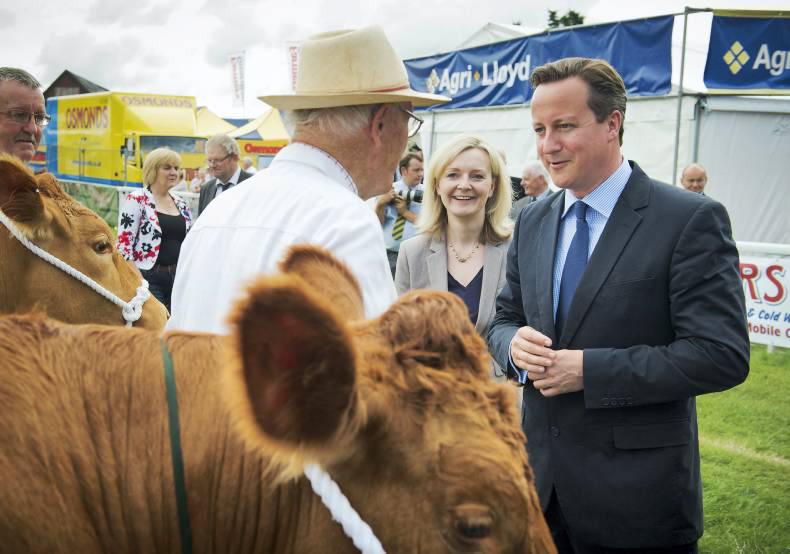Speaking at the Royal Welsh show earlier today, Cameron unveiled a range of initiatives to boost productivity in the British agri-food industry when he addressed crowds in Powys, Wales.
Cameron highlighted plans to drive food and drinks exports to countries outside the EU including India, China and Brazil, putting a £7 billion figure on these new opportunities. Securing access for lamb to China was singled out as a priority.
Cameron said that the UK-wide Food Innovation Network will give over 8,000 small- and medium-sized businesses greater access to technology, science and academic expertise.
In England, plans to use a single inspection taskforce and updated technology to streamline farm inspections have been promised to take up less of farmers' time and reduce costs for the department.
“Farming and food production are a fundamental part of our rural economy. As a one-nation government, we will keep on backing British farmers to grow and sell more home-grown food by liberating them from red tape and opening up new multi-million pound export markets,” said Cameron.
DEFRA cuts
However, earlier in the week Chancellor of the Exchequer George Osborne asked non-protected government departments, such as the Department for Environment, Food and Rural Affairs (DEFRA), to create plans to deliver 25-40% resource budget cuts by 2020 as part of the 2015 Spending Review.
Osbourne said “more from less” could be delivered by finding efficiencies through savings and devolving power.
Final details on the review will be announced at the end of November, however many in the industry have commented, saying DEFRA’s budget has already been well reduced since 2010.
Noting the government’s 25-year plan to grow and sell more British food, National Farmers’ Union (NFU) president Meurig Raymond said: “If resources are going to be cut by that amount you question whether the department can function correctly and play that role.”






 This is a subscriber-only article
This is a subscriber-only article






SHARING OPTIONS: